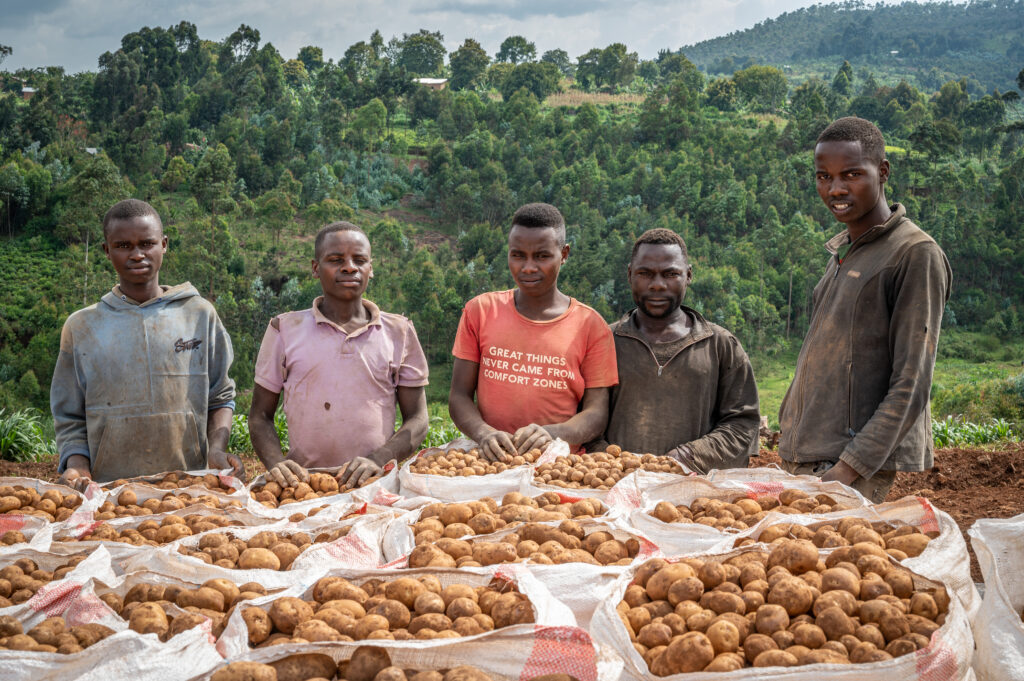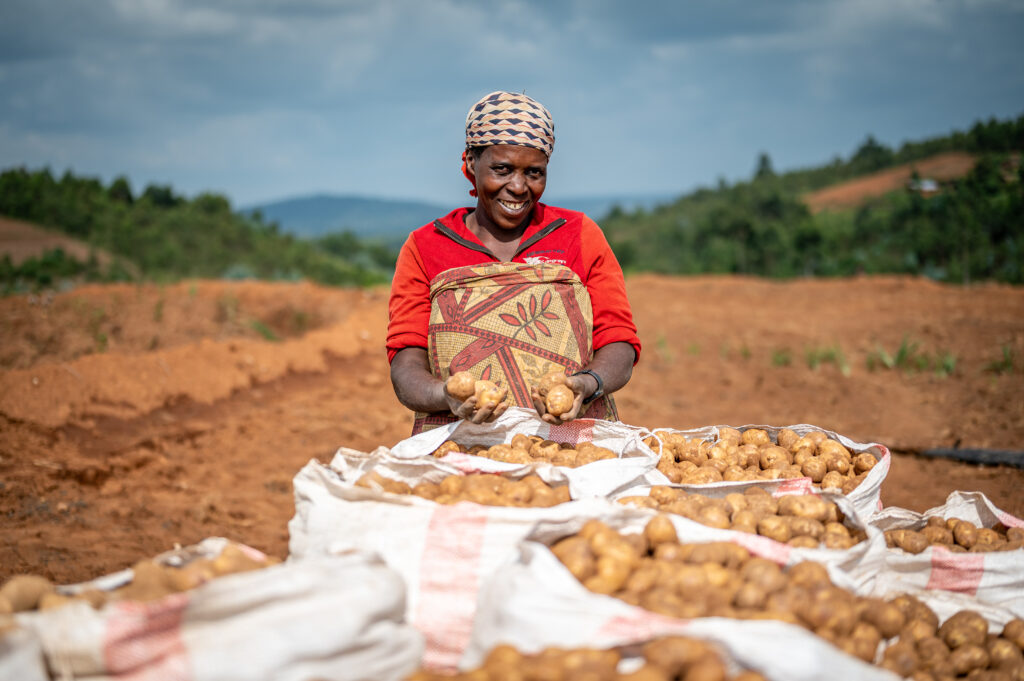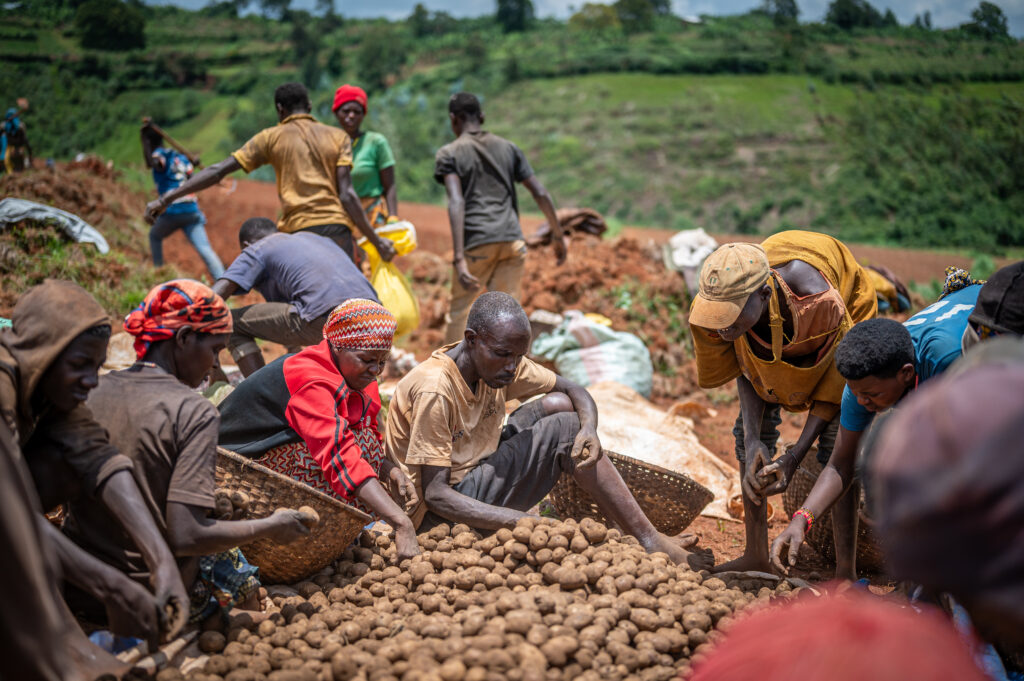Burundi is a low-income country, with 80% of its population working in agriculture. In 2019, a study by the National Bank of Burundi revealed a stark reality: only 2% of loans from microfinance institutions supported the agricultural sector. Recognising this gap, Cordaid launched the Rural Innovative Finance Development Support Project (PADFIR).

PADFIR has helped rural farmers access vital resources, transforming their lives and livelihoods by raising awareness, creating tailored financial products, and partnering with microfinance institutions.
A Path to Opportunity: The Agri-Finance Model
One of PADFIR’s standout initiatives is the introduction of agri-finance using the Agriculture Credit Assessment Tool (A-CAT). This tool facilitates financing across the agricultural value chain, ensuring farmers receive the support they need for sustainable growth. As the project approaches its conclusion, the results are evident: countless families have gained financial independence and stability.
‘The advice on planting calendars, seasonal best practices, and modern techniques was invaluable.’
A Loan That Changed Lives
Speciose Niyokindi, a mother who once struggled to feed her children, testifies: ‘Without credit, farming would have been impossible for my husband and me. We didn’t even have land to cultivate. Thanks to the microfinance loan and guidance from agronomists, we now have bountiful harvests and a brighter future.’
With their debt nearly repaid, Speciose and her family plan to expand into livestock farming. Her story is a testament to how financial inclusion can uplift communities.

Marc Bancanamwo’s journey is another success story. With a loan of 1,133 euros, he harvested over 73 tons of potatoes, earning recognition as a seed multiplier in Mwaro province. ‘Cordaid connected us with microfinance collaborators who provided funding and technical support,’ Marc explains. ‘The advice on planting calendars, seasonal best practices, and modern techniques was invaluable.’
Watch this documentary about Cordaid’s work on improving food systems in Burundi:
Key Ingredients for Success
Egide Kamaranyota oversees PADFIR’s microfinance initiatives and highlights the collaborative effort with 12 microfinance institutions. ‘Together, we’ve developed financial products tailored to the rural sector. Awareness-raising has been central to our success,’ he notes.
The Twitezimbere Financial Institution, a PADFIR partner, credits Cordaid’s support for their growth. ‘Cordaid provided us with training, agricultural finance tools like A-CAT, and resources such as motorbikes and an agronomist to improve customer outreach and support in the field,’ director Egide Nijebariko shared.
Challenges and Innovations
Despite the progress, challenges persist. Many microfinance institutions view agriculture as high-risk due to disrupting factors like climate change. Farmers, too, often hesitate to embrace credit. To address these barriers, PADFIR has introduced community-based rural microfinance and piloted agricultural micro-insurances, offering much-needed security for farmers.

Vision for the Future
Cordaid’s plans are ambitious yet grounded in the needs of rural communities. The organisation aims to make farmers more resilient by expanding access to credit, raising awareness, and training microfinance agents. The pilot phase of the micro-insurance initiative will also be extended to include more members and new partnerships will be welcomed to enhance the project’s impact.
Since 2019, Cordaid has promoted sustainable agri-food systems in Burundi, focusing on climate resilience and rural financing. Following its merger with ICCO in 2021, the organisation has broadened its scope to address systemic challenges in agriculture, ensuring a brighter and more sustainable future for rural farmers.
The PADFIR project demonstrates the transformative power of financial inclusion. By equipping rural farmers with the tools, knowledge, and resources they need, Cordaid is improving lives and strengthening Burundi’s agricultural sector.
